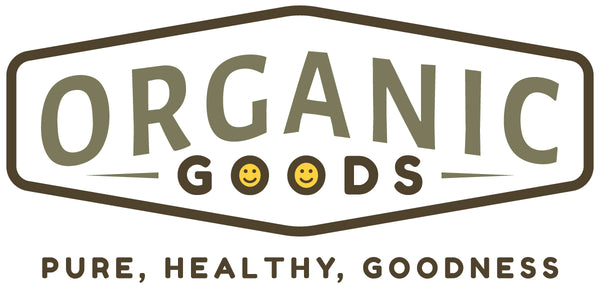
The Organic Advantage: Harnessing the Power of Nature for Optimal Health
Share
Table of Contents
- Introduction: The Organic Advantage: Harnessing the Power of Nature for Optimal Health
- The Nutritional Superiority of Organic Ingredients
- Reducing Exposure to Harmful Chemicals and Pesticides
- Enhancing Taste and Flavor
- Supporting Sustainable Farming Practices
- The Role of Organic Ingredients in Overall Wellbeing
Introduction: The Organic Advantage: Harnessing the Power of Nature for Optimal Health
The rise of organic-based ingredients in our diet is a testament to the increasing awareness of the importance of natural, chemical-free food for our well-being. Organic food offers numerous advantages, such as the absence of synthetic chemicals, higher nutrient density, and a more robust flavor. This article will delve into the organic advantage and its significance in promoting optimal health.
• Organic food is a rich source of essential nutrients, making it an integral part of a healthy diet. • Consuming organic food can significantly reduce exposure to harmful chemicals and pesticides.The Nutritional Superiority of Organic Ingredients
Organic food is often touted for its higher nutrient density compared to conventionally grown produce. Several studies confirm that organic crops tend to have higher levels of vitamins, minerals, and antioxidants. These nutrients are essential for the body's proper functioning, boosting immunity, and enhancing overall health. The organic method of farming, which avoids synthetic fertilizers and pesticides, seems to help plants produce more of the nutrients and antioxidants they need to fend off pests and diseases. Hence, when we consume organic food, we also benefit from these higher nutrient levels.
Reducing Exposure to Harmful Chemicals and Pesticides
One of the primary reasons people choose organic food is to avoid exposure to pesticides and other harmful chemicals. Conventionally grown crops are often treated with a wide array of pesticides and synthetic fertilizers, residues of which can remain on, or in, the food we eat. Long-term exposure to these chemicals has been linked to a variety of health problems, including certain types of cancer and developmental issues in children. By choosing organic food, we significantly reduce our exposure to these potentially harmful substances.
Enhancing Taste and Flavor
Beyond the health benefits, organic ingredients are often praised for their superior taste and flavor. Without the use of artificial substances, organic food is believed to develop a richer, more authentic taste. This is particularly true for fruits and vegetables, which are allowed to ripen naturally without the use of ripening agents or preservatives. The result is food that tastes the way nature intended, offering a sensory experience that is both enjoyable and wholesome.
Supporting Sustainable Farming Practices
Organic farming isn't just beneficial for our health; it's also good for the planet. Organic methods help maintain soil health, conserve water, reduce pollution, and encourage biodiversity. By supporting organic farming, we're also promoting sustainable agricultural practices that respect the earth and its natural cycles. Organic farming can be a viable solution to many environmental issues we're facing today, such as loss of biodiversity, soil degradation, and water scarcity.
The Role of Organic Ingredients in Overall Wellbeing
The decision to choose organic food isn't merely about nutrition or taste; it's about embracing a holistic approach to health. By incorporating organic ingredients into our diet, we're nourishing our bodies with nutrient-dense food, minimizing exposure to harmful chemicals, and supporting sustainable farming practices. Consuming organic food can significantly contribute to our overall wellbeing, enhancing not just physical health but mental and emotional wellness too. Embracing the organic advantage is about harnessing the power of nature for optimal health.
The beauty of organic living lies in its simplicity and its tandem with nature. By choosing organic, we are making a conscious decision to remove harmful chemicals and pesticides from our lives, not just in our food, but in every aspect of our living — from the clothes we wear to the cleaning products we use. This lifestyle change has a direct impact on our health, reducing the risk of chronic diseases like cancer, heart disease, and diabetes. Moreover, going organic doesn't just benefit us on an individual level. It's a step towards promoting biodiversity and environmental sustainability. Organic farming practices aim to maintain ecological balance by reducing pollution and conserving water and soil quality. It's a way of giving back to the planet that nurtures us. Also, in a fast-paced world where instant gratification is the norm, organic living encourages us to slow down and reconnect with our roots. It fosters a sense of mindfulness and gratitude, helping us appreciate the simplicity and beauty of nature. Recognizing that our choices directly impact our wellbeing and the health of our planet can lead to a profound shift in consciousness and lifestyle. In conclusion, embracing the organic advantage means more than just adopting a healthier diet. It's about making a holistic commitment to our health and the health of our planet. It's about choosing quality over quantity, sustainability over convenience, and health over momentary pleasure. It's about rekindling our relationship with nature and reaping the benefits of its bounty in the most respectful and sustainable way possible.
